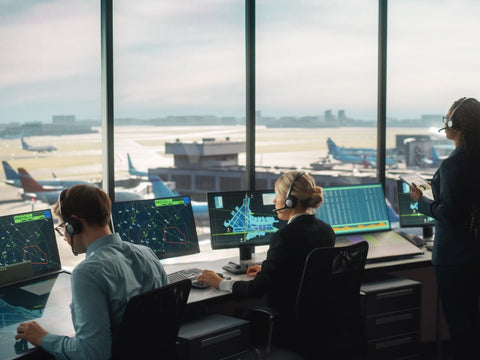So what is an optimizer and how does that affect the average life of an airline pilot working the line for a airline? Pilots complain about schedules, seniority and how the trip pairings are created every month. If you...
So what is an optimizer and how does that affect the average life of an airline pilot working the line for a airline?
Pilots complain about schedules, seniority and how the trip pairings are created every month. If you are not paying attention, you may notice the pairings and duty days changing ever so slightly.
Current Crew Schedules
Currently the airline industry is operating in a very dated and neanderthal way. Most airlines are scheduled 3-5 times per month with pilots rotating in and out of trips either via trade or disruption. But there is a new sheriff in town that is slowly changing the rules. And those changes are going to change the way that crews view their quality of life.
Trip creation
Typically trips are created via software with a few guidelines that optimize them for the company. Flight crews get the tweaked out version of trips with overnights in various cities after all those pairings are scrutinized by software. This has all been pretty much straight forward.
A new Day has arrived
Now trips are Optimized more carefully and tweaked out starting in one base or another so that the company wins in most situations. Crew pairings are no longer built with what a flight crew may want or what their seniority will hold. It may seem like it used to be that way, but those days are over. Now its all about small 1% changes that the company can create that makes a healthier and cheaper operation. Those changes are creeping into crews lives and its not going to be pretty in the long run. But wait, theres more…
Flight management software
One reason airlines have a fair amount of disfunction is due to flight management software. I am not saying that software is a bad thing, indeed it has helped many airlines as they grow to manage the operaton of the fleet and to create solutions for passengers when things change due to weather or delays. The solution also comes with its own problems. What ends up happening is that people are removed from the decision making process because they rely on the software to tell them what to do. Software is pretty advanced in todays marketplace and it can become mindless to follow the yellow brick road so to speak. This created a reliance on the software and limits any out of the box creative thinking to get things moving.
This is where pilots tend to chime in and try to make suggestions. Their “captain obvious” approach does not fit in the softwares algorithm and ends up clogging system operations with more problems since the solutions are not easily changed in the software. The user has to be an expert in order to make it work and in today’s marketplace, experts are few and far between being found or hired.
It can be very frustrating to sit by as a crew member and watch things unravel when an obvious solution is apparent. When crew members call in to offer those solutions, it does not always work. It is good to keep in mind that the passion for fixing things should be noted by the crew that calls in with the suggestion, but that is not the way things always work. Is flight management software a good thing? Sure, but there has to be another evolution to it that combines real life input to software code that creates a reality to the situation.
The Future Twist
So how does software evolve to the next level and move an airline forward? The answer is presenting itself in all sorts of other fields and that answer is artifical intelligence.
In the past NASA use to hire mathematicians to do advanced calculations to figure out all sorts of solutions to their initial programs. Today those calculation are done in mere moments because of computers. That seems very basic to us today but if NASA had those computers early on, it would have changed the way they did business and also the way they evolved as an agency. AI can do that today for modern airline operations, but its not about solving problems.
Trend Analysis
Imagine the man hours it would take to analyze data from every airport, every flight, every crew for every single day of the year. Every nuance of weather, ATC delays, shortages, fuel issues, crew delays etc could be recorded captured and analyzed effeciently. AI could process solutions from those results and create small changes that “optimize” the airlines operations. Airliines operate on very thin margins, a small 1% change for the better results in millions of dollars in increase revenue.
So what does that mean for todays crews?
That is the million dollar question. AI would have the ability to streamline trip pairings so efficiently that it would seem like someone (or something) was micro managing the whole thing like a puppeteer. In the long run you could depart on a two or three day trip that was published and AI could swap crew members out here and there to capture those 1% changes on the fly (so to speak) So getting attached to that layover in Auraba might not be the best mindset if there is a storm brewing in the midwest. AI would have that capability to tweak the operation for the airlines benefit regardless of what crew members think. This upgrade will affect the “quality of life” issues that senior crew members bid for.

An Example
History has shown airlines that it was not wise to have crew members laying over in destinations that were also crew bases. For example if New York was a crew base, then having a Ft. Lauderdale crew lay over in New York, did not make a lot of sense on paper. A lot of times those bigger crew base cities were also ones that are expensive to put crewmembers up in hotels. Good examples would be San Francisco, New York, Atlanta, Chicago and the like. But now the tide is changing, management is starting realize that if they rotate crew members through their bases and have them overnight, they have a greater ability to recover from an irregular operation. Those crew members are fair game for rescheduling. The question begging to be asked is, does it justify the extra dollars for overnighting that crew? The answer was always no, but when you dig deeper, that answer is changing to yes. AI will uncover so many more solutions and out of the box thinking that most management types miss.
Why

Because airline operations is fraught with managing the operation. I call it the firehose mentality. There are two many fires (variables) to put out on any given day. A thunderstorm rolls in, a crew member forgets his passport, an airplane breaks, lack of spare aircraft or crew members only add to that list. Considerable time is spent putting out those fires which takes away from the big picture of how to preven those fires in the first place.
airline schedule planning
Reduces airlines costs by 15% (advertised) due to disruptions
automated decison making takes a human out of the loop. So forget trying to come up with the captain obvious solution.
Often disguised as protecting passengers intenieries
Now the new twist. AI Airlines only get bigger and more complex using it for fuel management AI is not afraid to balance out load factors and use a zillion forcasts to make flight loads that create more revenue. And its not going to be shy about adjusting crews schedules either.
Revenue management
The Future Ahead
the direction we are headed is automated travel. Shorter and direct routes via RNAV and GPS technology with planes communicating over satelites with the foresable future of having no pilots in the mix at all. Fuel is the number one cost to an airline, imaging reducing the second highest, people.











